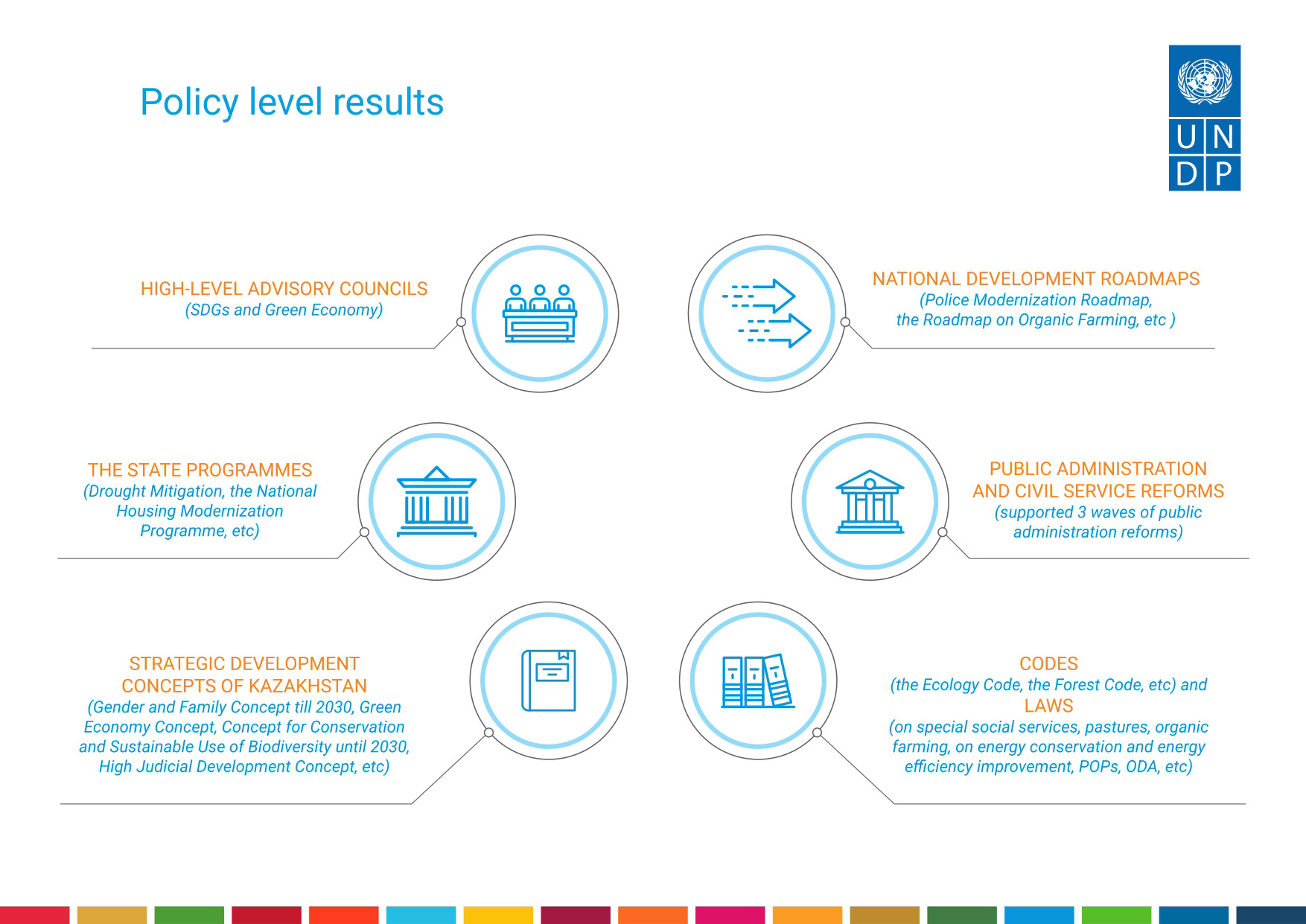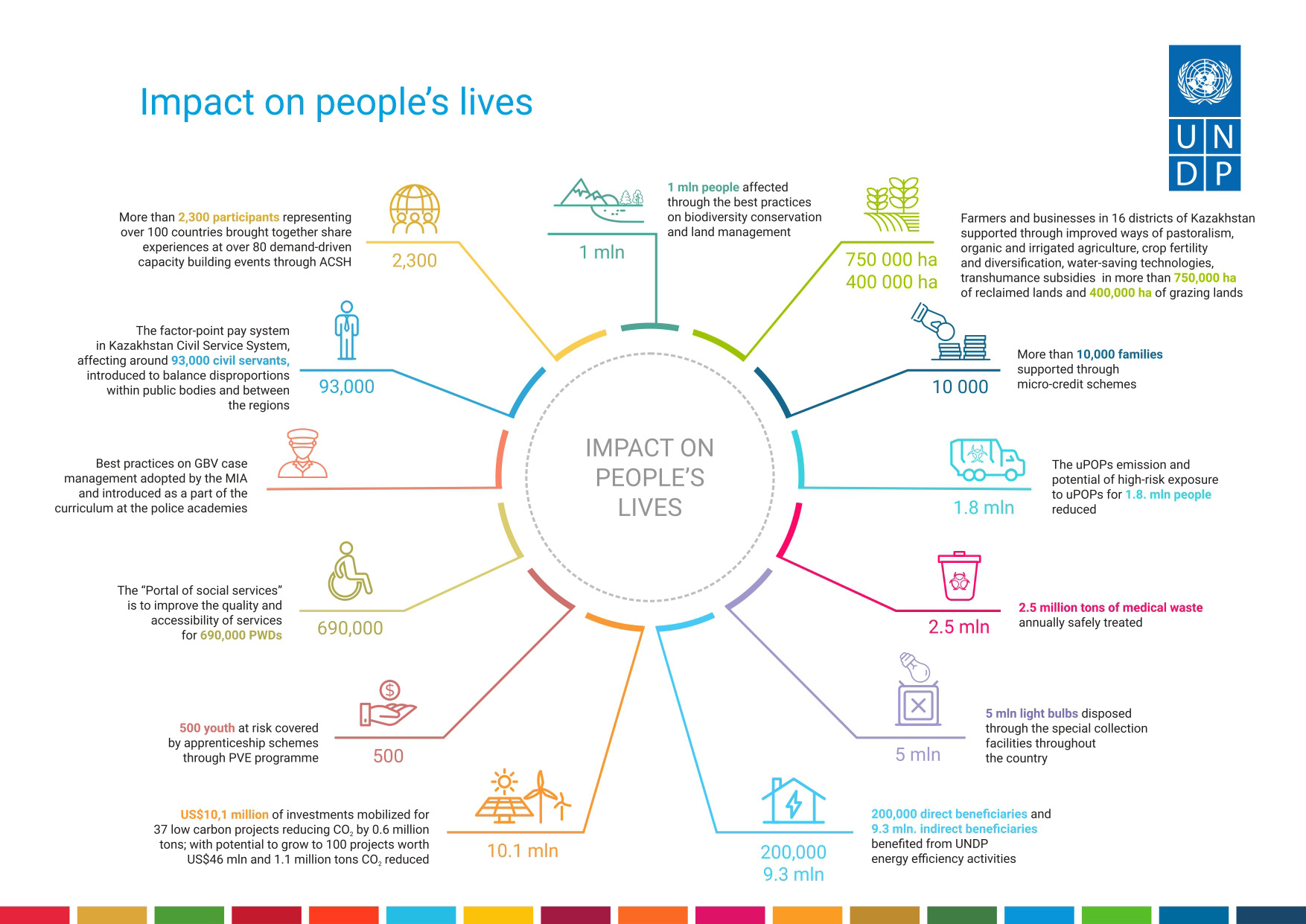
Kazakhstan
About us
Who we are
As the United Nations lead agency on international development, UNDP works in 170 countries and territories to eradicate poverty and reduce inequality. We help countries to develop policies, leadership skills, partnering abilities, institutional capabilities, and to build resilience to achieve the Sustainable Development Goals (SDGs).
We have been part of the country’s development progress since the early independence (1993) having implemented more than 200 projects worth over US$200 million in a wide array of thematic areas. We have been providing targeted policy support to civil service and public administration reforms, efforts, contributing to anti-corruption and more government transparency, prevention of gender-based violence, promotion of the rights of people with disabilities, and access to justice. Environmental governance, climate change adaptation and low-carbon development are also among our flagship partnership initiatives in Kazakhstan.
Check our corporate brochure.
Mission and vision
UNDP is the leading United Nations organization fighting to end the injustice of poverty, inequality, and climate change. Working with our broad network of experts and partners in 170 countries and territories, we help nations to build integrated, lasting solutions for people and planet. In Kazakhstan, our focus is on sustaining the country’s growth trajectory by diversifying economy, modernizing institutions, reducing inequalities, and sustainably managing natural resources.
What we do
UNDP in Kazakhstan is guided by its Country Programme Document (currently Country Programme 2021-2025), and the United Nations Sustainable Development Cooperation Framework for 2021-2025, which are in line with the strategic priorities of the Government of Kazakhstan, enshrined in the “Kazakhstan-2050” Strategy, Strategic Development Plan to 2025, and other key sectoral strategies and plans.
We support Kazakhstan in implementing the Sustainable Development Goals and sustaining its growth trajectory by diversifying economy, modernizing institutions, reducing inequalities, and sustainably managing natural resources. We help to:
1. Address social vulnerabilities and inequalities
2. Rebuild trust with citizens through more effective and accountable institutions, free of corruption
3. Foster high-productivity, diversified and knowledge-based economic growth
4. Support climate and disaster resilience and nature-based, low-carbon growth.
We promote gender equality and women’s empowerment through dedicated interventions across all four abovementioned areas.


The UN Charter
The Charter of the United Nations was signed in San Francisco on 26 June 1945, at the conclusion of the United Nations Conference on International Organization and came into force on 24 October 1945. Its purposes and principles are to maintain international peace and security, develop friendly relations among nations based on equal rights and self-determination, and to achieve international co-operation in solving economic, social, cultural, or humanitarian challenges without distinction for race, sex, language, or religion.
History
UNDP is based on the merging of the United Nations Expanded Programme of Technical Assistance, created in 1949, and the United Nations Special Fund, established in 1958. UNDP, as we know it now, was established in 1966 by the General Assembly of the United Nations.
In Kazakhstan, we have been part of the country’s development progress since 1993.

 Locations
Locations




